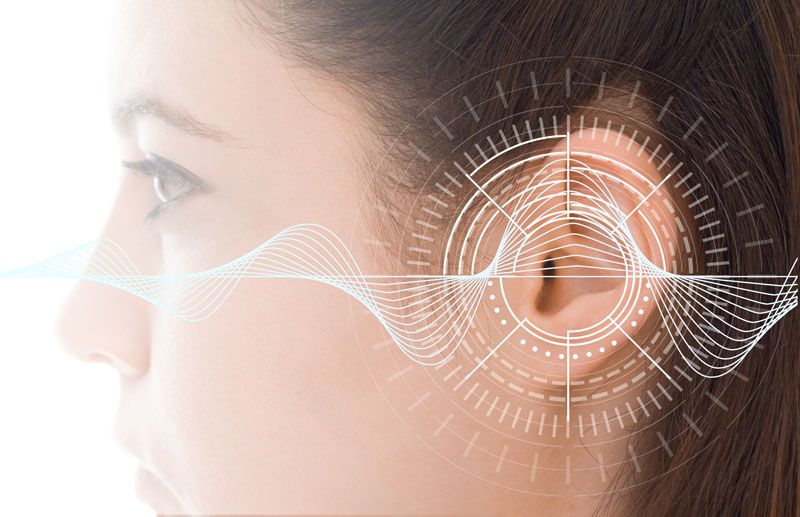Do you experience a ringing in your ears? If so, you are not alone. Tinnitus affects an estimated 50 million Americans—about 20 percent of the population. It can range from a mild annoyance to a full-fledged problem that severely impacts your quality of life.
There is no universal cure for tinnitus, but there are treatments that can provide relief for those who find it distracting or bothersome. Because tinnitus is a symptom of an underlying condition, identifying the problem may lead to a medical or surgical solution. The cure rates for pulsatile tinnitus are quite high once the problem has been identified.
Non-pulsatile tinnitus is usually accompanied by some degree of hearing loss. In the majority of cases, treatment of the underlying hearing loss will provide some degree of relief from tinnitus. Below are the most common therapies for tinnitus.
Acoustic Therapy

Sounds are used to cover up, or mask, the tinnitus. This distracts your brain and helps you tune out the ringing in your ears. Electronic devices that produce white noise, air conditioners, fans, soft music, etc. can all be employed.
Hearing aids
There is a strong correlation between tinnitus and hearing loss. When the pattern of auditory nerve stimulation by the ear changes due to hearing loss, the brain may adapt by perceiving tinnitus. Hearing aids can restore a regular pattern of nerve stimulation, which will often suppress the tinnitus, and can vastly improve speech intelligibility.
Hearing aids can also help the patient better distinguish one sound from another, improving communication and helping with focus and concentration difficulties. Most modern hearing aids can also self-generate noise to mask tinnitus if amplification of ambient noise alone does not suppress the tinnitus.
Steroid Injections
Meniere’s disease (also known as endolympatic hydrops) has a triad of symptoms (hearing loss, tinnitus and vertigo) that fluctuate due to increased fluid pressures in the ear organs. Fluctuation of hearing and resulting tinnitus can be treated with a series of injections of Dexamethasone (a potent steroid) with an 85 percent chance of reduction in tinnitus symptoms.
Surgery
Tinnitus is very rarely treated with surgery. A comprehensive audiological and medical evaluation would be required to identify those few patients who are suitable candidates for surgical intervention.
Counseling
Counseling, sleep and cognitive behavioral or relaxation methods can be practical in helping you manage your tinnitus symptoms by reducing the stress, anxiety and sleeplessness that are often associated with tinnitus. Advanced Hearing Hawaii providers teach methods to help you manage your tinnitus symptoms.
Call our office at (808) 262-6673 for more information or to schedule an appointment.